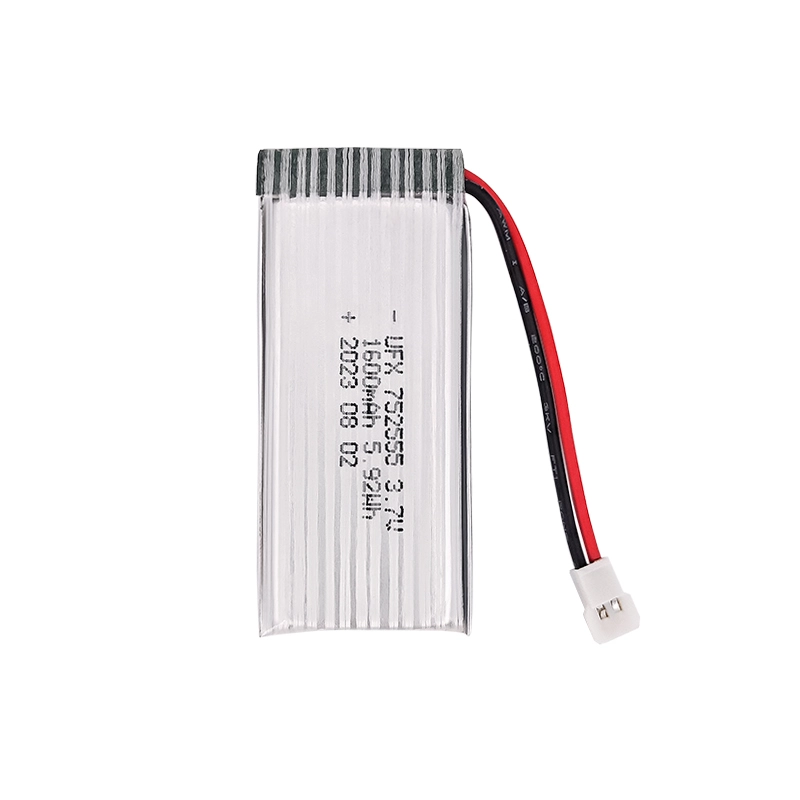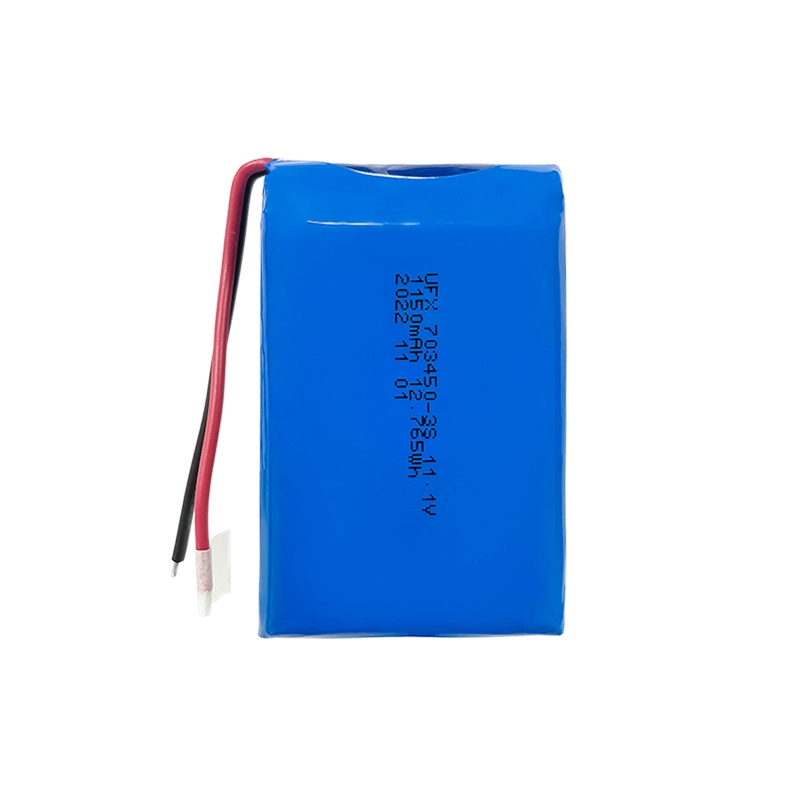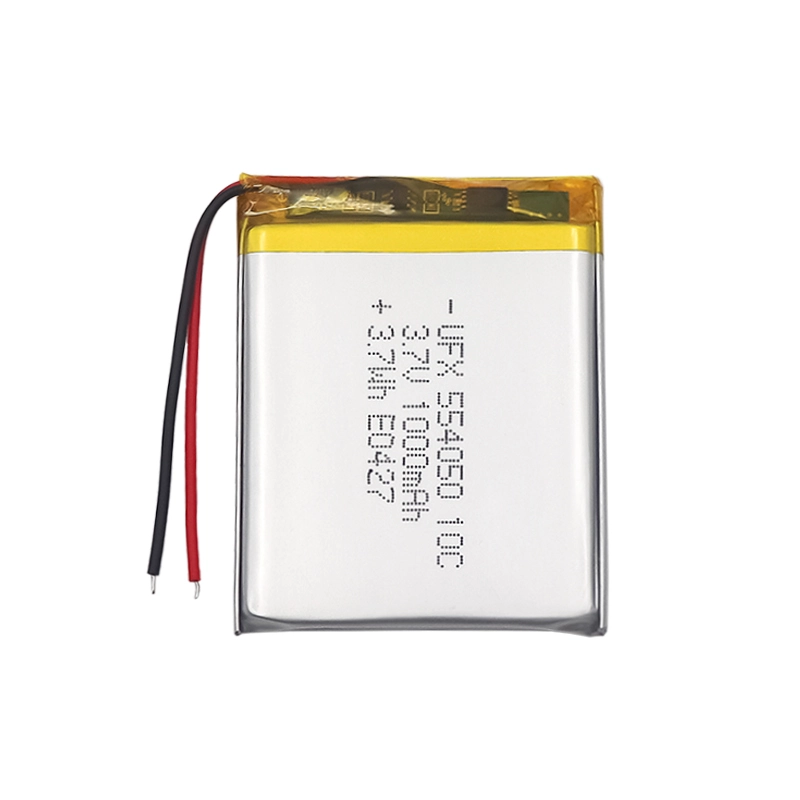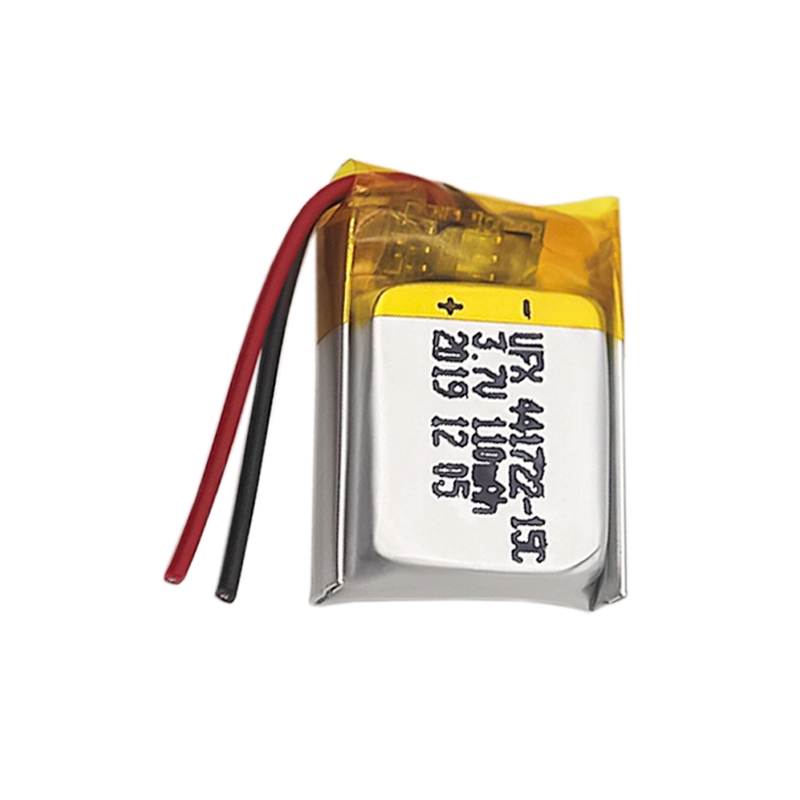
최고의 Lipo 배터리로 RC 자동차 성능 강화
RC 자동차의 성능을 향상시키고 싶으신가요? 핵심은 적절한 배터리를 선택하는 것입니다. 선도적인 리튬 배터리 제조업체인 Ufine은 RC 자동차 애호가들을 위해 다양한 맞춤형 옵션을 제공합니다.
RC 자동차 배터리의 종류는 무엇인가?
1. Lipo 배터리 (리튬 폴리머)
- Lipo 배터리는 높은 에너지 밀도와 가벼운 설계로 RC 자동차 커뮤니티에서 널리 인기가 있습니다.
- 높은 방전율을 제공하여 일관된 출력과 성능을 보장합니다.
- Lipo 배터리는 2s(2셀), 3s(3셀), 4s(4셀) 등 다양한 구성으로 제공되며, 이는 직렬 연결된 셀 수를 나타냅니다.
- 출력과 사용 시간의 균형이 뛰어나 고성능 RC 자동차에 적합한 선택입니다.
2. NiMH 배터리 (니켈-수소)
- NiMH 배터리는 RC 자동차의 전통적인 선택지이며, Lipo 배터리에 비해 경제적인 옵션을 제공합니다.
- Lipo에 비해 에너지 밀도가 낮아 출력과 사용 시간이 약간 감소합니다.
- NiMH 배터리는 방전 동안 일정한 전압을 유지하여 안정적인 성능을 제공합니다.
3. LiFe 배터리 (리튬 철 인산염)
- LiFe 배터리는 비교적 새로운 옵션으로, Lipo와 NiMH 배터리의 장점을 균형 있게 제공합니다.
- NiMH 배터리보다 에너지 밀도가 높아 출력과 사용 시간이 향상됩니다.
- Lipo 배터리보다 열폭주나 화재 발생 위험이 적어 안전성이 강화되어 있습니다.
RC 자동차용 최고의 Lipo 배터리
RC 자동차용 Lipo 배터리는 시장에서 고성능 옵션으로 잘 알려져 있습니다. 이 배터리는 높은 출력, 가벼운 설계, 우수한 성능을 제공합니다.
최적의 Lipo 배터리를 선택할 때는 용량, 방전율, RC 자동차 모델과의 호환성, 예산 등을 고려해야 합니다. 또한 제조사의 지침에 따라 올바른 사용, 충전 및 보관을 준수하여 배터리 수명과 안전성을 보장하는 것이 중요합니다.
RC 자동차 배터리: NiMH 배터리 vs 리튬 배터리
모델 비행기나 RC 자동차와 같은 원격 제어 모델은 일반적으로 NiMH 배터리 또는 리튬 배터리를 사용합니다. 그러나 동일한 용량과 부피에서 NiMH 배터리의 방전율은 리튬 배터리보다 낮습니다. 따라서 리튬 배터리가 현재 주류입니다.
1. 전압 차이
리튬 배터리 전압은 3.7~4.2V이고, NiMH 배터리는 1.2V에 불과합니다. 한 개의 리튬 배터리 용량은 직렬로 연결된 NiMH 배터리 3개와 동일합니다.
2. 충전 속도 차이
리튬 이온은 배터리 내부에서 활발히 이동하므로 충전 전류가 크고 충전 속도가 빠릅니다. 리튬 배터리는 약 3시간 만에 완전히 충전할 수 있습니다. 반면 NiMH 배터리는 충전 속도가 매우 느려 완충하는 데 약 하루가 소요됩니다.
3. 에너지 밀도 차이
리튬 이온 배터리는 높은 에너지 밀도를 가지고 있습니다. 따라서 동일한 부피에서 NiMH 배터리보다 용량이 큽니다.
4. 메모리 효과 차이
리튬 이온 배터리는 메모리 효과가 없어 필요할 때 자유롭게 충전 가능합니다. NiMH 배터리는 일정한 메모리 효과가 있어, 일상 사용 시 완전히 방전 후 충전하는 것이 용량 유지에 좋습니다.
5. 자기 방전 현상 차이
NiMH 배터리는 Ni-Cd 배터리에 비해 자기 방전이 크지 않지만, 거의 무시할 수 있는 리튬 배터리와 비교하면 NiMH 배터리는 방전 왕이라고 할 수 있습니다.
RC 자동차에서 Lipo 배터리 수명은?
RC 자동차의 Lipo 배터리 수명은 사용 패턴, 유지보수, 보관 조건 등 여러 요인에 따라 달라질 수 있습니다. 일반적인 고려 사항은 다음과 같습니다:
1. 사용 패턴: RC 자동차 사용 방식과 배터리 요구량이 수명에 영향을 줍니다. 사용 시간과 강도, 스로틀 조절, 운전 습관 등이 배터리 수명에 영향을 줍니다.
2. 방전율: Lipo 배터리는 권장 최대 연속 방전율이 있습니다. 최대 방전율에 근접하여 지속적으로 사용하면 셀에 부담을 주어 수명이 단축될 수 있습니다. RC 자동차 전력 요구량에 적합한 방전율의 Lipo 배터리를 선택하는 것이 중요합니다.
3. 유지보수: 적절한 유지보수는 수명 연장에 도움이 됩니다. 셀 균형 맞추기, 권장 전압 수준에서 보관, 과충전 및 과방전을 피하는 것이 포함됩니다.
4. 보관 조건: Lipo 배터리는 직사광선과 극한 온도를 피하고, 시원하고 건조한 장소에 보관해야 합니다. 고온 노출은 성능 저하와 수명 단축을 유발할 수 있습니다. 또한 셀당 약 3.8~3.9V 수준에서 보관하는 것이 좋으며, 완전 충전 또는 완전 방전 상태로 장기간 보관하면 수명에 부정적인 영향을 줍니다.
일반적으로 적절한 관리와 유지보수를 통해 RC 자동차용 Lipo 배터리는 약 200~300 충전 사이클의 수명을 제공합니다. 다만 위 요인에 따라 차이가 있을 수 있으며, 정기적인 모니터링, 제조사 지침 준수, 필요 시 배터리 교체가 최적 성능과 안전을 위해 필수적입니다.
높은 에너지 밀도
더 작고 가벼운 패키지에 대량의 에너지를 저장하고 있습니다.
더 긴 사이클 수명
장시간으로 충방전 사이클을 돌릴 수 있습니다.
낮은 자가 방전
사용하지 않을 때 전력 손실이 적습니다.
안전
사고 위험을 최소화하고 안전 운행을 보장합니다.
RC 자동차 배터리에 대한 추가 정보
-
리튬 배터리 수명은 얼마나 되나요?
-
리튬 배터리는 안전한가요?
-
맞춤형 배터리의 용량 및 전압 범위는 어떻게 되나요?
-
리튬 배터리 생산 및 배송 소요 시간은 얼마나 걸리나요?
최신 블로그
리튬 배터리 산업 뉴스에 관한

배터리수명이 짧아지는 진짜 원인 7가지를 사용 습관과 환경 기준으로 분석합니다. 충전 방식, 온도, 발열이 수명에 미치는 영향을 정리했습니다.
2026/02/28 조준혁

리튬이온, 리튬폴리머, LiFePO4 배터리의 수명을 비교하고 실제 사용 환경에서 오래 쓰는 방법을 자세히 설명합니다
2026/02/28 조준혁

고온·저온 배터리, 왜 여름엔 열화하고 겨울엔 꺼질까?
고온과 저온 환경에서 배터리가 빨리 닳는 이유와 실사용 해결 방법을 소개합니다. 계절별 관리 팁과 선택 포인트까지 한눈에 확인하세요.
2026/02/28 이선우

리튬배터리 종류 선택 기준 5가지: 용량·전압·안전·수명·가격
리튬배터리를 용량, 전압, 안전성, 수명, 가격 기준으로 비교한 가이드입니다. 전동모빌리티, 산업장비, 전자제품 배터리 선택과 설계 포인트, 사례를 확인하세요.
2026/01/15 이선우

용도별 리튬배터리 종류 정리: 전자제품·산업용·전동모빌리티
전자제품, 산업용, 전동모빌리티에 적합한 리튬배터리 종류를 용량, 안전성, 수명 기준으로 비교하고 B2B 설계 시 고려할 선택 포인트를 정리했습니다.
2026/01/15 조준혁

원통형, 각형, 파우치형 리튬배터리를 구조, 안정성, 공간 활용 기준으로 비교합니다. 산업용 리튬배터리 선택에 필요한 장단점을 체계적으로 정리했습니다.
2026/01/15 조준혁





